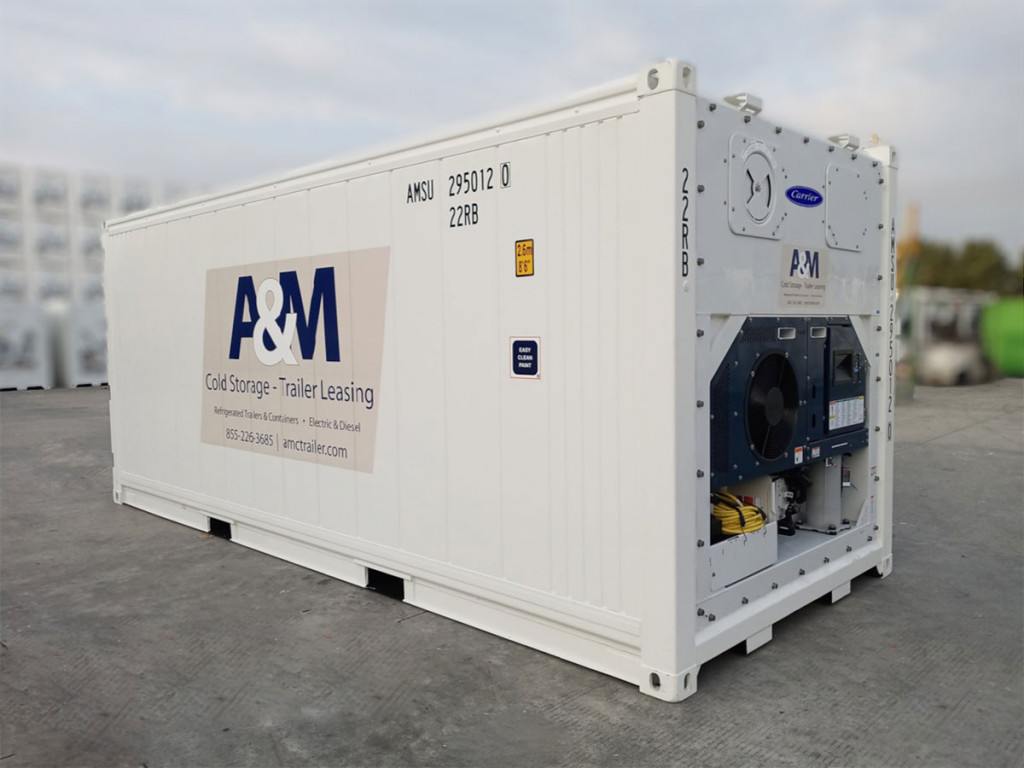A&M Cold Storage recently responded to Carrier’s call to support global COVID-19 vaccine distribution efforts by making immediately available 90 Carrier Pods monitored by Sensitech for deployment to help address the anticipated increase in demand for refrigerated storage capacity. Carrier and Sensitech are part of Carrier Global Corporation, a leading global provider of healthy, safe and sustainable building and cold chain solutions.

“We are happy to support this important mission, as we believe that tackling the pandemic is an essential imperative which requires all aspects of the cold chain to come together to ensure the safe storage and movement of COVID-19 vaccines,” said Jeff Quellhorst, director of sales, A&M Cold Storage. “These Carrier Pods not only help ensure end-to-end cold chain visibility and integrity but are also uniquely suited to cater to the rigorous on-ground requirements of vaccine distribution.”
“A&M Cold Storage has risen to the occasion by making 90 Carrier Pod units immediately available which could be highly beneficial to pharmaceutical companies, distribution centers and vaccine administrators,” said Christopher Kranick, associate sales director, The Americas, Global Container Refrigeration, Carrier.
With Carrier Pods monitored by Sensitech, container refrigeration units can deliver temperature control within +/- 0.25 degrees Celsius and temperatures down to ‑40 degrees Celsius, while their monitoring devices can track temperatures down to dry ice conditions of -95 degrees Celsius. Their mobility allows for easy relocation to address shifting capacity demands or temporary vaccine administration locations.









